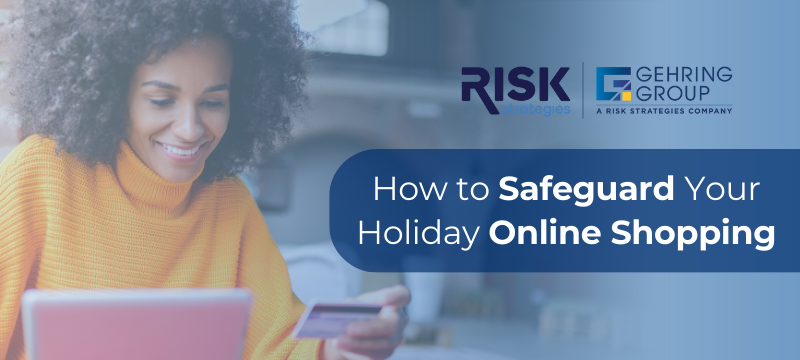
As the holiday season approaches, the allure of online shopping beckons with its convenience and vast array of gift options. Amidst the excitement of browsing virtual aisles, it’s crucial to remember the importance of cybersecurity practices. With the rise of cyber threats and the increasing sophistication of hackers, safeguarding your personal information and financial details is paramount.
1. Shop Secure Sites Only. Before making a purchase, ensure the website is secure. Look for the “lock” icon in the address bar and the prefix “HTTPS” in the URL. These indicators signify that the site encrypts your data, protecting it from interception. Avoid shopping on unfamiliar or suspicious websites, even if they offer tempting deals.
2. Beware of Phishing Emails and Pop-ups. During the holiday season, hackers often employ phishing tactics to trick unsuspecting shoppers into revealing sensitive information. Be wary of emails or pop-ups that appear to be from legitimate retailers or payment providers but contain links that redirect you to unfamiliar websites. Never click on links in such emails or enter personal or financial details on these sites.
3. Use Strong, Unique Passwords. Creating strong and unique passwords for each online account is essential to prevent unauthorized access. Avoid using easily guessable information like birthdays or common words. Consider using a password manager to generate and securely store strong passwords.
4. Exercise Caution on Public WIFI. Refrain from making online purchases or accessing sensitive accounts while connected to public WIFI networks, as these networks are often unsecured and vulnerable to hacking attempts. If unavoidable, consider using a virtual private network (VPN) to encrypt your data and protect your privacy.
5. Stay Alert for Unusual Activity. Regularly monitor your bank and credit card statements for any unauthorized transactions. Report any suspicious activity immediately to your financial institution.
6. Shop from Reputable Retailers. Stick to reputable retailers with a proven track record of security and customer service. Avoid shopping from unknown or unfamiliar websites, even if they offer enticing deals.
7. Keep Software Updated. Ensure your operating system, web browser, and security software are up to date with the latest patches and updates. These updates often address newly discovered vulnerabilities that hackers could exploit.
8. Use Secure Payment Methods. Whenever possible, opt for secure payment methods such as credit cards or PayPal. These methods offer protection against fraudulent transactions and provide recourse in case of unauthorized charges.
9. Review Privacy Policies. Before making a purchase, read the retailer’s privacy policy to understand how your data will be collected and used. Be selective in the information you share and opt out of unnecessary data collection practices.
10. Stay Informed and Vigilant. Keep yourself updated on the latest cybersecurity threats and trends. Be wary of suspicious emails, pop-ups, and websites, and always exercise caution when sharing personal or financial information online.
For more posts like this one, check out our blog HERE.